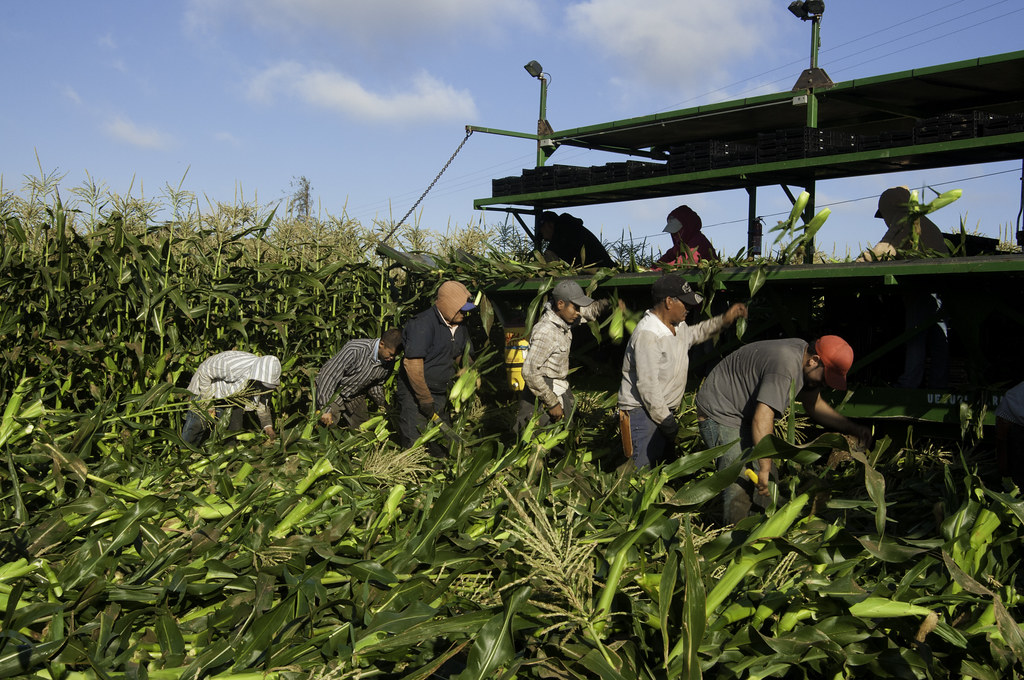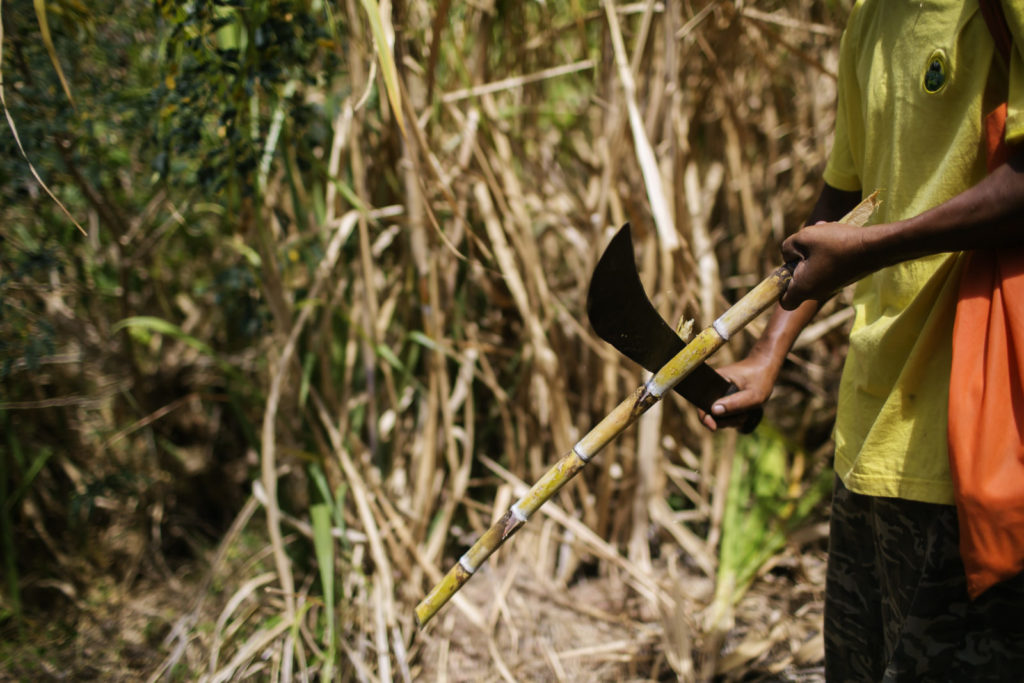
Download this and other articles about the state of social protections in the global South compiled in our latest DAWN Informs here
It is widely known that migrants are often at the margins of national social protection systems in their countries of residence. They are also likely to be at the margins of the systems in their home countries, either by practice (not using them because they do not reside there) or by law. It is also common to find that migrant women from the global south provide paid and unpaid care and reproductive labour (as nurses, nannies, domestic and elderly support workers, etc) that is central to the social protection systems in the countries of residence, especially but not limited to, the global north. Migrant labour has been fundamental for the creation and sustenance of social protection systems in several destination countries, i.e. the British and Dutch health systems, which relied on Indian, Caribbean, and South African health workers. An aspect that has barely been discussed is how the decay of formal and informal systems of public services, infrastructure, and social protection is a driver of women’s transnational mobility. Moreover, the deterioration or absence of reliable social policies increases their risk of embarking into dubious labour migration arrangements that in some cases are linked to human trafficking and other risky and exploitative journeys.
Poor social protection drives precarious migration journeys

The deterioration of social protection and social security systems are key incentives for human mobility. People often embark on transnational journeys looking for strategies to cover the costs of care for their dependants in their countries of origin. For example, recent qualitative research about the drivers behind the migration of millions of Venezuelans into Colombia, Ecuador, and Peru, 56.3 percent affirmed to have embarked on their migration journeys due to the lack of access to medical treatment and 63.9 percent due to hunger (UNHCR-IOM 2019, Bermúdez, Mazuera-Arias, Albornoz-Arias, & Morffe Pereza, 2018).
The weakening or absence of social protection systems is a key enabler of human trafficking. Even when women may identify risky transnational job offers, the pressure to cover for the care needs of their dependents is a strong incentive for them to enter into what may entail risky journeys and exploitative labour schemes. This is notable in impoverished communities in post-socialist Ukraine (Hankivsky, 2011) as well as in neoliberalised economies of the 1990s and early 2000s such as Haiti and the Dominican Republic (Llavaneras Blanco, forthcoming).
The privatization of health and education services increases the pressure on women to accept harsher labour conditions in exchange for income that would enable them to cover for school fees, health treatments, funeral services, etc. In an interview conducted in a Haitian border town, a Haitian migrant domestic worker explained why she worked on the Dominican side of the border despite her undocumented status and poor labour conditions: “I work in [migrant] domestic work because the situation gets difficult when one has children and need to pay for schooling” (Llavaneras Blanco, forthcoming). For her, as for many migrants, the absence or weakening of accessible social services was a significant push into precarious migration and labour journeys.
A transnational crisis of social protection
Labour migration schemes are increasingly tailored in ways that reduce the paths to citizenship in receiving countries and equate the mobility of people (migration) with the mobility of goods (trade). This has multiple implications in terms of accessing social security and social protection. For example, it is often the case that migrant workers contribute financially to social security systems that do not protect them or their families. Seasonal agricultural workers in Canada, often from the Caribbean and Central America, are often contributing to a social security system that does not protect the majority of them from workplace injuries (Marchitelli, 2016). This form of exclusion also occurs in the global south. Elderly Haitian workers who devoted their lives’ labour to sugar production in the Dominican Republic often die without access to pensions to which they contributed throughout their working lives (Leclerc, 2015). This affects retired elderly male workers and commonly their widows, who in most cases are migrants themselves, and are left in conditions of extreme precariousness since their own labour was historically unaccounted and scarcely paid (Francisco, 2015).
Migrant domestic workers are amongst the least protected of migrant labour. The most serious occur in Saudi Arabia, where Filipina and Indonesian domestic workers have faced death penalties (Agencies, 2018, 2019) without effective protection from their countries of origin. In most cases, migrant seasonal and domestic workers tend to live significant parts of their lives in countries where they do not hold the right to nationality and therefore have scarce means to be represented and politically accounted for. In tandem, migrant domestic labour is a significant part of the national development plans of their countries of origin, as a sizeable source of foreign income. Because of their reliance on migrant labour, origin countries may compromise their ability to defend the rights of their workers abroad. For example, the Philippines, Indonesia, and Sri Lanka have implemented measures to protect their foreign female workers abroad, such as pre-departure training, improved consular services, and moratoria in cases of extreme violence against their nationals. However, the effectiveness of these measures depends significantly on their position in the international market and their ability to keep their ‘customers’ satisfied by not upsetting them too much (Ireland, 2018). In those cases, the presence of civil society and gender justice advocates can make a difference in the creation of effective channels of participation for diverse stakeholders (including migrant workers themselves) and transnational mechanisms of social protection for the workers and their families.
The conclusions of the 63rd session of the Commission on the Status of Women held March 2019, make some relevant remarks regarding the situation of migrants in the context of social protection, access to public services and sustainable infrastructure. These three main themes are linked by their centrality for social reproduction and the sustenance of life and play a central role in terms of human transnational human mobility.
CSW 63 called upon governments to “adopt national gender-responsible migration policies and legislations and protect the human rights of all migrant women and girls” (CSW, 2019, p. 13/22). It made significant calls for cooperation among diverse stakeholders, including countries of origin, transit, and destination, in terms of granting access to rights, documentation and social protection to all migrants, including also the creation of comprehensive anti-trafficking strategies from a human rights and sustainable development perspective. These calls cause significant governance challenges that require close attention and participation of civil society groups and to grant space to people on the move, no matter their legal status. It is critical to pay close attention to the participation of those whose access to documentation is undermined by the very states that are expected to protect them. Those with precarious legal status and scarce access to documentation are the most exploitable.
Social protection is a central aspect of human mobility, especially for women whose socially determined responsibility to provide care to their dependents pushes them to endure labour and spatial journeys that often can be dangerous and exclusionary. In this context, it should be a priority to access social protection in home countries, defending the right to development and to stay in conditions of safety, and well-being. In tandem, it is fundamental to protect the rights of freedom of movement, to seek asylum, and have a nationality, all of which are enshrined in the Universal Declaration of Human Rights. The latter three are increasingly compromised by the securitization of migration, and the increasing precariousness of migrant and labour rights. The right to social protection, social security and work, no matter the legal status are key elements in the struggle for the human rights of migrants, and particularly of women migrant workers who find themselves constantly on the move due to their personal circumstances.
Agencies, A. J. a. N. (2018, October 31). Indonesia protests Saudi execution of domestic worker. Al Jazeera. Retrieved from https://www.aljazeera.com/news/2018/10/indonesia-protests-saudi-execution-domestic-worker-181031094812124.html
Agencies, A. J. a. N. (2019). Filipina domestic worker executed in Saudi Arabia. Retrieved from https://www.aljazeera.com/news/2019/01/filipina-domestic-worker-executed-saudi-arabia-190131063017217.html
Bermúdez, Y. S. J., Mazuera-Arias, R., Albornoz-Arias, N., & Morffe Pereza, M. Á. (2018). Informe sobre la movilidad humana venezolana: Realidades y perspectivas de quienes migran. Retrieved from
CSW. (2019). Social protection systems, access to public services and sustainable infrastructure for gender equality and the empowerment of women and girls. (E/CN.6/2019/L.3). New York
Francisco, M. (2015, June 23). Marchan para exigir la entrega de pensiones a viudas de cañeros jubilados. Listín Diario. Retrieved from https://listindiario.com/la-republica/2015/06/23/377446/caneros-reclaman-que-les-paguen-beneficios
Hankivsky, O. (2011). The dark side of care: the push factors of human trafficking. In R. Mahon & F. Robinson (Eds.), Feminist ethics and social policy towards a new global political economy of care. Vancouver: UBC Press.
Ireland, P. R. (2018). The limits of sending-state power: The Philippines, Sri Lanka, and female migrant domestic workers. International Political Science Review, 39(3), 322-337. doi:10.1177/0192512118755597
Leclerc, I. L. (2015, June 23). Cañeros reclaman que les paguen beneficios. Listín Diario. Retrieved from https://listindiario.com/la-republica/2015/06/23/377446/caneros-reclaman-que-les-paguen-beneficios
Llavaneras Blanco, Masaya (2019) “Famn Pa Chita: Mobility, intimate labour, and political subjectivities among Haitian women on the move” PhD Thesis, Wilfrid Laurier University
Marchitelli, R. (2016). Migrant worker program called ‘worse than slavery’ after injured participants sent home without treatment. CBC. Retrieved from https://www.cbc.ca/news/canada/jamaican-farm-worker-sent-home-in-a-casket-1.3577643
Palmer, W., & Missbach, A. (2018). Enforcing labour rights of irregular migrants in Indonesia. Third World Quarterly, 1-18. doi:10.1080/01436597.2018.1522586 UNHCR-IOM. (2019). Venezuelan outflow continues unabated, stands now at 3.4 million [Press release]. Retrieved from https://www.unhcr.org/news/press/2019/2/5c6fb2d04/venezuelan-outflow-continues-unabated-stands-34-million.html
